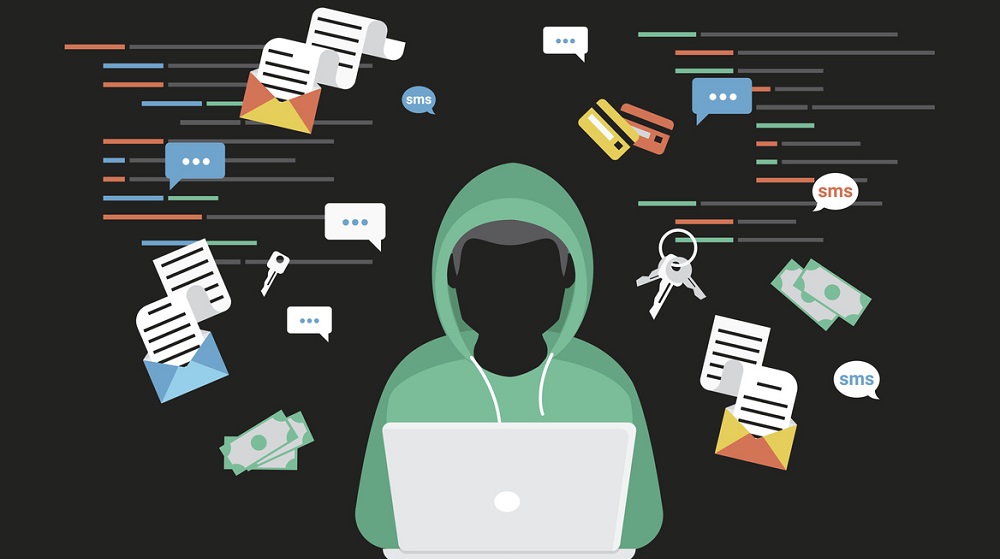The actions executed by persons with harmful intentions that seeks unlawfully access to important/confidential data, disrupt all types of digital operations or to damage necessary information are known as Cyber Security Threats.
Cyber attackers uses any individual’s or company’s sensitive data to gain access of their financial accounts or to steal information, among other potentially harmful actions, it is essential to keeping all types of private data protected.
Cyber Threats Sources
Some common cyber threats sources against organizations are:
- Nation States—inimical countries launch cyber-attacks against native institutions or companies, to interfere in communications, inflict damage, and cause disorder.
- Terrorist Organizations—terrorists perform cyber-attacks to threaten national security, destroy or abuse critical infrastructure, disrupt economies, or cause physical harm to citizens.
- Criminal Groups—special groups of organized hackers target to break into the computing systems of others for economic advantage. They use spam, phishing, spyware or malware to extort, rob private information, or do online scams.
- Hackers—single hackers aim organizations with various attacking techniques for personal gain, financial gain, revenge, or political activity.
- Malicious Insiders—employee having legitimate access in company assets, many times abuses their privileges to damage computing systems or to steal information for personal or economic gain. These insiders can be employees, suppliers, contractors, or even partners of the organization.
Cyber Security Threats Types
The various types of cyber security threats are:
- Malware:
Malware is malicious software like ransomware, spyware, viruses or worms. It gets activated when any user clicks on the malicious link or attachment, which results installation of dangerous software. And when malware once gets activated it can:
- Block access to main network components
- Install further harmful software
- Secretly gain information by transferring data from hard drive
- Disorder separate parts, thereby making the system inoperable
- Emotet:
According to CISA (Cybersecurity and Infrastructure Security Agency) Emotet is a progressive, segmental banking Trojan that chiefly functions as a dropper or downloader of other banking Trojans. It is among the most destructive and costly malware.
- Denial of Service:
Denial of service also known as DoS is a cyber-attack that floods computer or network which restricts respond requests. Distributed DoS (DDoS) also does the same thing, however the attack generates from computer network.
- Man in the Middle:
When the hackers insert themselves in between two-party transaction it is known as man-in-the-middle (MITM) attack. After interfering in the traffic, they filter and steal data. MITM attacks generally happen when visitors use unsecured public Wi-Fi network.
- Phishing:
Phishing attacks practise fake communication like an email, to trick the receiver thereby making them to open it and carry out the instructions mentioned inside, like providing credit card details, etc.
- SQL Injection
SQL (Structured Query Language) injection is a cyber-attack type which results insertion of malicious code in the server which uses SQL. The server releases information when it gets infected.
- Password Attacks
With correct password, a cyber-attacker can access the treasure of information. Social engineering is a common password attack type it heavily relies on human interaction and often includes tricking people for breaking the standard security practices.
Cyber Security Solutions
Organizations use cyber security solutions tools to defend against cyber security threats, physical disasters, accidental damage, as well as other threats.
The main security solutions types are:
- Application Security—it tests vulnerabilities in software application during development and testing.
- Network Security—it monitors network traffic, recognises potentially malicious traffic, and allows organizations to filter, block or mitigate threats.
- Cloud Security—it gears security controls in public, private as well as hybrid cloud environments, sensing and fixing incorrect security configurations & vulnerabilities.
- Endpoint Security—installed on endpoint devices like servers or employee workstations, which prevent threats such as unauthorized access, malware, and misuse of browser and operating system vulnerabilities.
- Internet of Things (IoT) Security—IoT security solutions help to gain visibility and recover security for IoT devices.
- Threat Intelligence—combines numerous feeds having data about attack signatures as well as threat actors, offering additional context for security events.
At Build Websites, we are always prepared to help our customers to protect their websites against all types of cybercrime. For more details or best website security services, contact us today!

